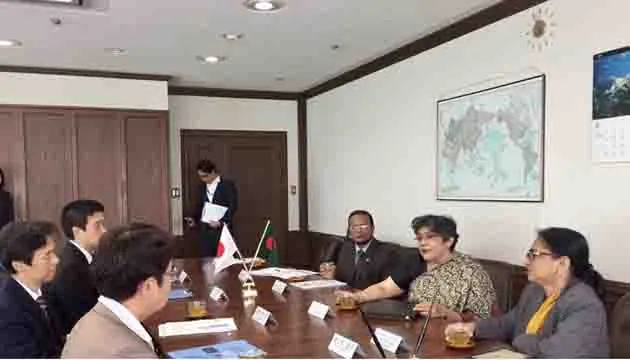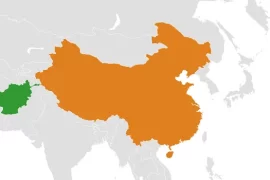Bangladesh Prime Minister Sheikh Hasina’s upcoming Japan visit is going to create a new milestone in Bangladesh-Japan relations. This piece focuses on migration issue. In fact, from a Bangladesh perspective, labour migration and diaspora connections are critical to its relations with Japan. Japan is a desirable destination for migrant workers from any corner of the world. And Japan has been the desirable destination for Bangladeshi migrant workers since the early 1980s. As of December 2020, the number of Japanese nationals residing in Bangladesh is estimated at 984, while the number of Bangladeshi nationals residing in Japan is estimated 17,463. This number is very low, considering the demand for migrant workers in Japan. Japan needs to recruit more Bangladeshi migrants for several reasons.

First, Bangladesh offers a large pool of semi-skilled and skilled labour, while Japan faces a severe shortage of working-age population. Japan is facing a severe shortage of human resources. Citing the UN data, Howard W. French reported in the New York Times back in 2003 that ‘Japan would need 17 million new immigrants by 2050 and 400,000 new immigrants each year’ (French, 2003). The issue is also covered in the national dailies of Japan. Though there is enough talk about the fourth industrial revolution where humans will be replaced by machines, human resources still matter. And the necessity of human resources will not disappear soon. Therefore, in addressing the shortage of labour force, Japan has opened doors for foreign workers (NPR, December 7, 2018). In this context, Japan made legal amendments in 2017, allowing recruiting foreign employees up to 10 per cent of their total workforce, which was five per cent earlier. In addition, it also extended the working period for the migrant workers from three years to five years. It is also worthy to note that in December 2018, Japan’s parliament passed an immigration law ‘that aims to attract 345,000 foreign workers over the next five years, seeking to plug gaps in the country’s rapidly shrinking and ageing workforce’ (Denyer and Kashiwagi, 2018; Yamawaki, 2020). It is argued that 2018 immigration law/reform ‘formally recognize that the future success of the Japanese economy will depend on the contributions made by migrant labor’ (Yamawaki, 2020).
Against the above backdrop, human resource migration can be a potential avenue of cooperation between Bangladesh and Japan. It is a positive news that in August 2019, Bangladesh and Japan signed a Memorandum of Cooperation (MoC) to recruit ‘Specified Skilled Workers’ (SSW) [Bangladeshi] to Japan in 14 sectors, including care workers, building cleaning management, machine parts & tooling industries, industrial machinery industries, electric, electronics and information industries, construction industry, shipbuilding/ship machinery industry, automobile maintenance, aviation industry, accommodation industry, agriculture, fishery & aquaculture, manufacture of food and beverages, and foodservice industry (UNB News, August 27, 2019). Bangladesh, as the sending country of specified skilled workers (SSW), is the ninth nation that signed the MoC with Japan. The then Bangladesh Ambassador to Japan Rabab Fatima contends that ‘signing the MoC which has opened a new horizon for Bangladesh’s labour market was like a dream comes true for us’ (UNB News, August 29, 2019).Thus, there is official channel now to recruit Bangladeshi migrant workers to Japan which needs to be utilized.
Second, it is reported that by 2025, Japan will face a scarcity of 4.25 lakh (0.425 million) IT engineers while Bangladesh produces 20,000 IT engineers a year. Thus, there is ample scope to promote migration cooperation in ICT sector between Bangladesh and Japan.
Third, Japan needs to consider the moral quality of the Bangladeshi migrants. For instance, the people of Bangladesh usually view Japan with love and respect. Love and respect of Bangladeshi people to Japan and its people is also acknowledged by the Japanese diplomatic community. For instance, Matsushiro Horiguchi, a former Japanese Ambassador to Bangladesh reiterated that ‘Since my arrival here in Dhaka about one year ago, I have been thoroughly amazed at how sympathetic and respectful the people of Bangladesh are towards Japan and the Japanese people. This has perhaps resulted from years of mutual trust, friendship, and cooperation by both our public and private sectors’ ( Embassy of Japan in Bangladesh , May 2006, p.1).
Fourth, one can add that there is reputation of Bangladeshi expatriates living in Japan (Takahashi, 2020). For instance, Noritsugu Suzuki, a manager at system developer Techno-Labo, offered high praise for Bangladeshi workers. According to Suzuki, ‘They’re [Bangladeshis] serious and passionate. We’re short on IT engineers from both Japan and abroad, so it’s a big help’ (Cited in Takahashi, 2020). In addition, the news title, ‘Japan police awards Bangladeshi expat for helping them’ clearly provides a positive message about Bangladeshi migrants in Japan (Moni, 2021).
Fifth, one can note that Bangladeshi diaspora is playing crucial role globally. According to a study by the International Labour Organization (ILO), ‘Bangladeshi diaspora members are playing a major role in some host countries. For example, they are a major actor in the United Kingdom with regard to socio-economic as well as political development of that country. Third or even fourth generation Bangladeshi diaspora members in the UK are on their way to establishing themselves in the mainstream of the British economy and political system. They are playing prominent role in the United States too’ (ILO, n.d.).
Finally, Bangladesh diaspora in Japan is contributing to the socio-economic development of Japan and Bangladesh. Notably, Bangladeshi nationals living in Japan are engaged in various activities, including business, employment, research and related academic pursuits with reputation.
Thus, there is enough scope for expanding cooperation in the areas of migration. The policy community in Japan and Bangladesh needs to think about taking Japan-Bangladesh relations to a new height in the next fifty years by broadening and deepening Bangladesh-Japan cooperation over migration.







